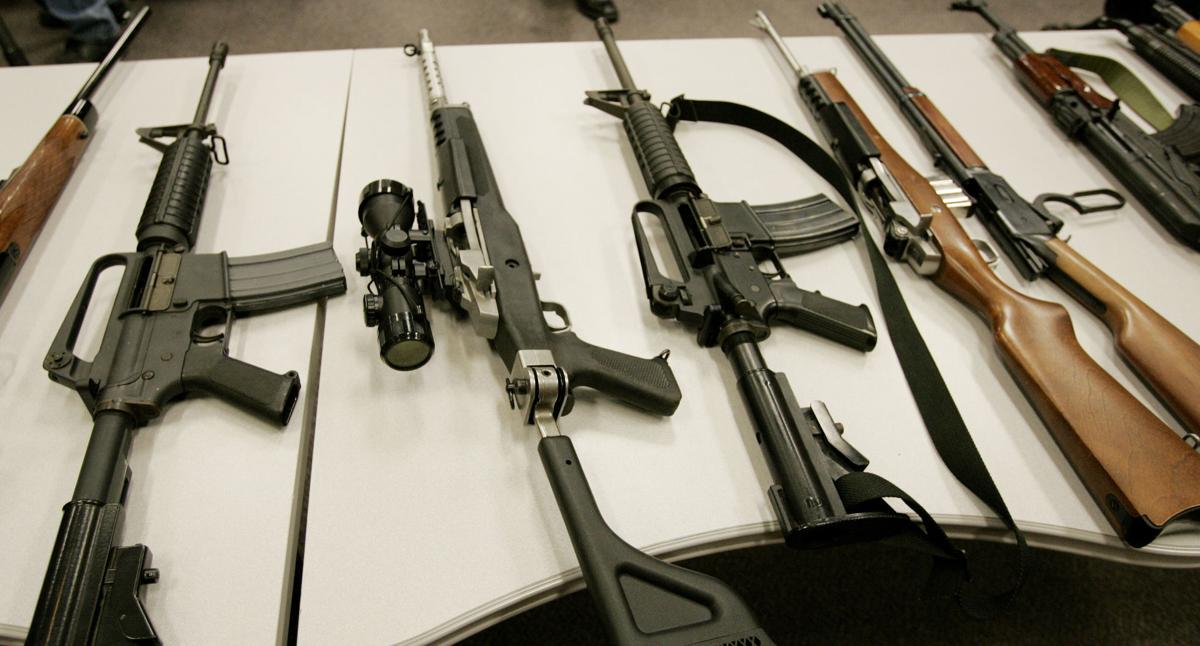The Arizona Supreme Court is scheduled to hear in two weeks the challenge to a 2016 law that says the state can withhold millions of dollars in shared revenue from Tucson if the city continues to destroy seized firearms.
The state’s highest court set a hearing date of Feb. 28 in Phoenix to determine whether the law is constitutional and whether the court has jurisdiction in the case.
The Tucson City Council suspended the practice late last year after Arizona Attorney General Mark Brnovich said the local rule “violated” the new state law and that the council must repeal its 2005 ordinance requiring the destruction of most firearms seized by Tucson police.
He said state law requires operable firearms that are seized to be sold to licensed gun dealers. He wants the Supreme Court to allow the state to cut off the shared revenue from Tucson.
City officials have repeatedly argued the city charter allows the city council to decide how it should dispose of its surplus property and has filed a legal challenge to the law in superior court.
The city claims the Supreme Court should not take jurisdiction of this case because Brnovich ruled the local ordinance “did” violate state law instead of “may” violate, which would have then required consideration by the Supreme Court.
The city’s attorneys also said that an immediate decision in this case is not required, which could have allowed for the Supreme Court’s jurisdiction, since the city has temporarily suspended the gun destruction program. The city wants the case heard in superior court.
“The State has failed to provide any justification for commencing this action in this Court rather than an inferior court. This case involves factual and legal disputes, and therefore favors a full hearing in the superior court so that findings of fact and conclusions of law may be prepared for consideration and review by this Court,” the city’s attorneys wrote in their most-recent filings to the Supreme Court.
Brnovich argues the law allows the state to withhold shared revenue for violating state laws or the Arizona Constitution and that the law has no impact on the city’s charter. He asked the court to reject Tucson’s challenge to the law.
“Nothing in SB 1487 prohibits or limits a city from adopting a charter. Neither does SB 1487 interfere with a charter city’s right to regulate matters of purely local concern,” he wrote.
Tucson receives about $115 million a year in state-shared revenue.
Richard M. Rollman and Richard A. Brown, attorneys for the city of Tucson, argued that if the high court finds the state law to be unconstitutional then it should “accept jurisdiction to put an end to further attempts to enforce the statute.”
However, they said if the court finds insufficient evidence the law is unconstitutional, then it should defer action on the issue until after the matter has been dealt with in superior court.
Also, a new filing from the League of Arizona Cities and Towns has changed its arguments in terms of where the case should be heard.
Paul Eckstein of the Perkins Coie law firm wrote the case should be heard in the Arizona Supreme Court and that the state law should be ruled unconstitutional.
Too much is at stake for Arizona cities, wrote Eckstein, who represents the League of Arizona Cities and Towns as well as the cities of Phoenix and Yuma.
“Those threats are too catastrophic to go unheeded, because even an unrealized threat of withheld revenue has serious consequences for a city or town,” Eckstein wrote in his filing. “To end these untenable threats, and to ensure the continued right to self-government enshrined in our Constitution, this Court should take jurisdiction.”





